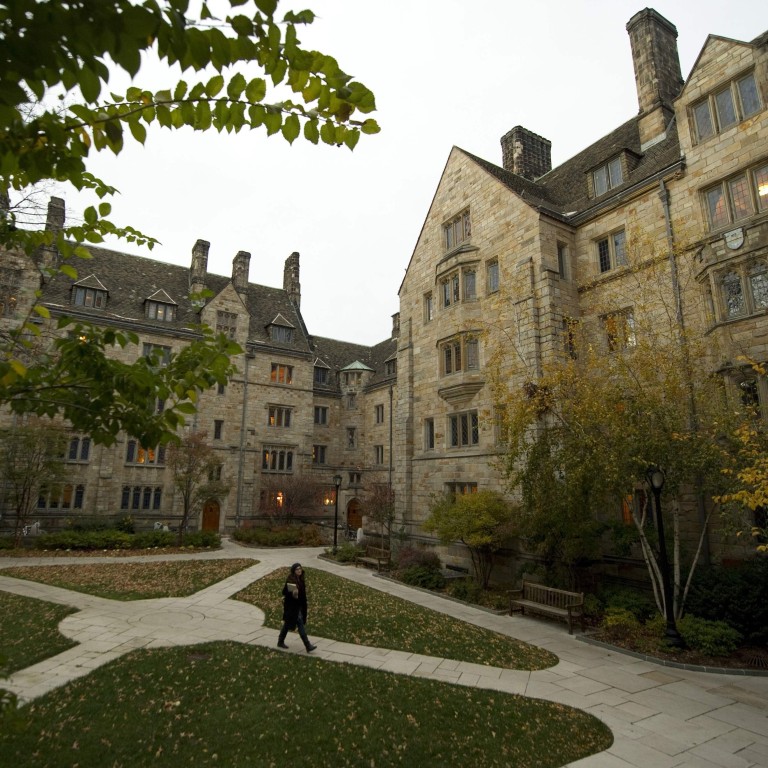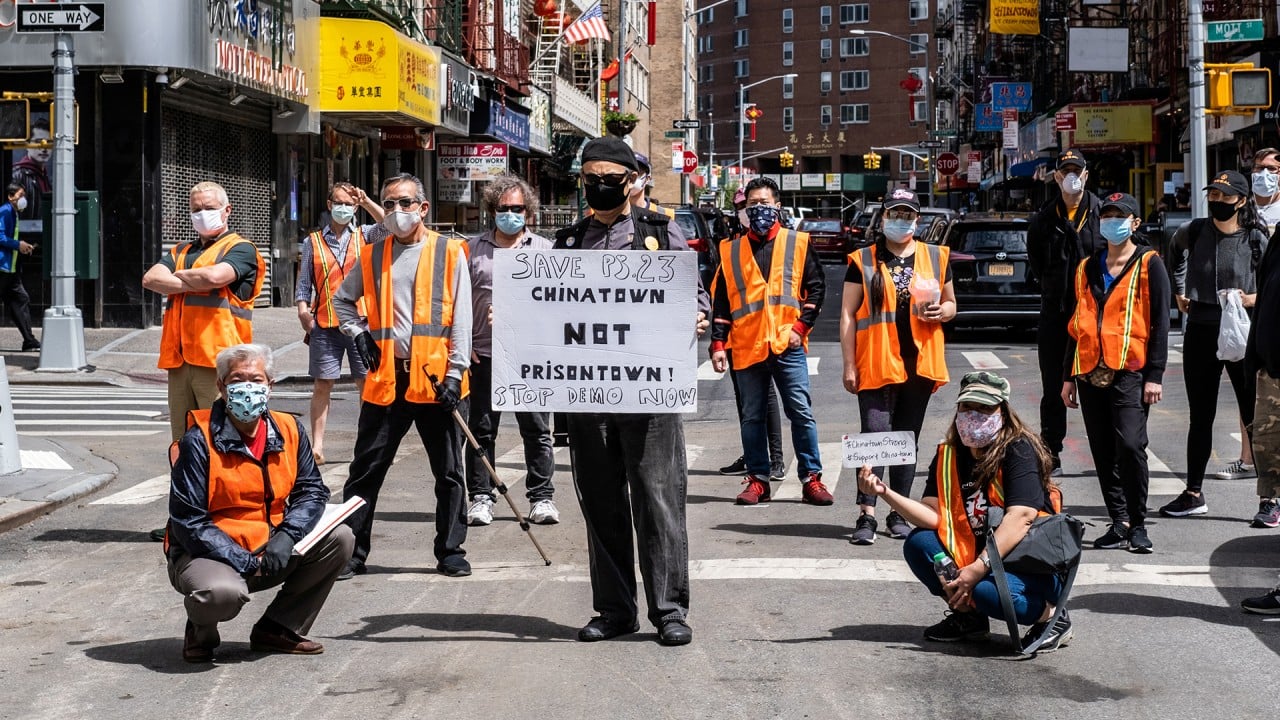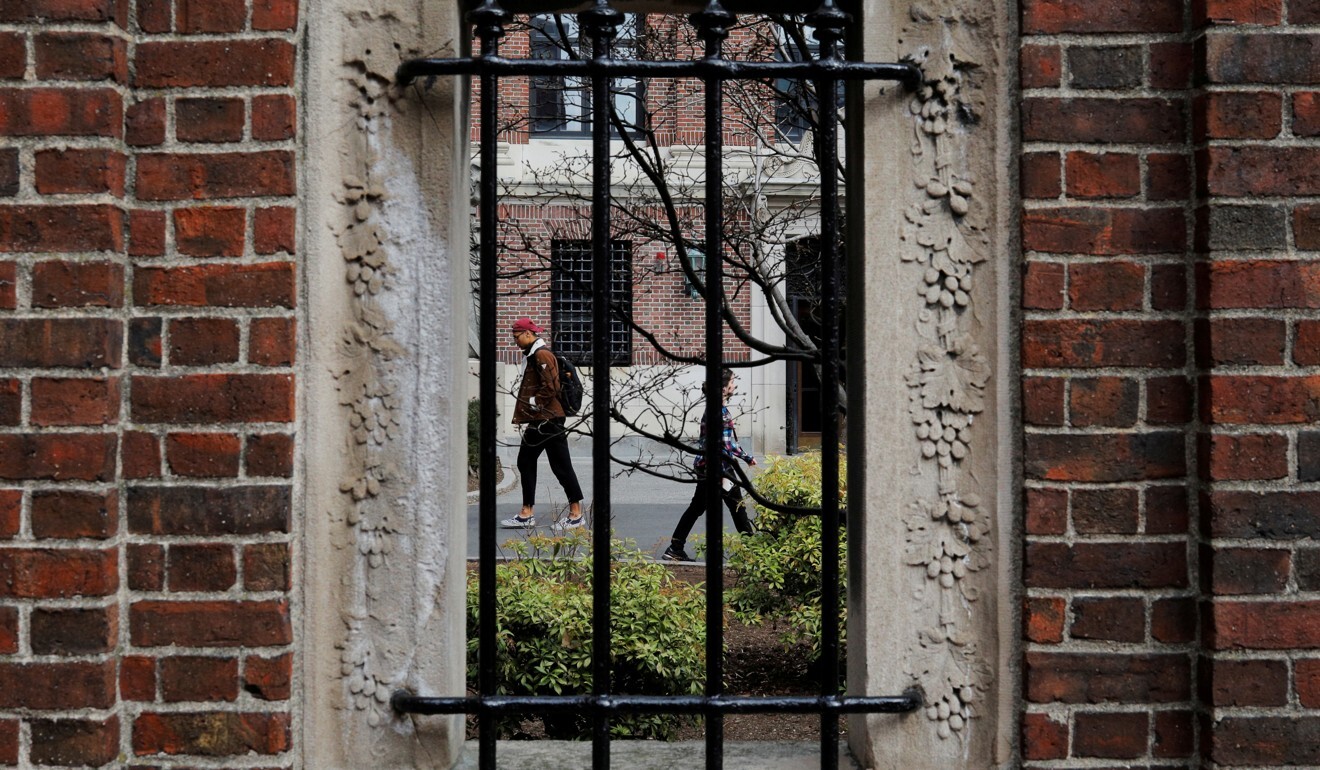
Asian-Americans divided on Yale affirmative action case
- US Justice Department calling Yale biased against white and Asian-American applicants has won fans but also critics
- Ethnicity and background affects outcomes, some say, while others point to ‘anti-black’ privilege
Asian-Americans have long pointed out that they should not be regarded as a homogenous group, as their diversity of ethnicities and backgrounds affect life outcomes.
For example, research has shown that those of Southeast Asian descent found it harder to attain higher education or economic security than those of Japanese, Korean or Chinese heritage.
Katrina Dizon Mariategue, who works with a Washington DC-based national advocacy group for Cambodian, Laotian and Vietnamese Americans, said groups of Southeast Asians had ended up in the US after fleeing war and genocide in their home countries, and faced well-documented resettlement challenges.

01:25
US colleges face US$15 billion hit as Chinese students stay away amid coronavirus pandemic
A 2016 research paper by the Journal of Southeast Asian American Education and Advancement found Hmong, Cambodian and Laotian refugees, who fled to the US in the 1970s after the Vietnam war, “dispersed into poor neighbourhoods with low-achieving peers” and a lack of residents of the same ethnicity.
Government assistance focused on helping them with survival rather than advancement, the paper noted.
Said Mariategue, the acting executive director of the Southeast Asia Resource Action Centre: “The circumstances of the refugee experience, compounded by long-standing discrimination and structural inequities in the US education system, has led to significant barriers for [this community] in accessing higher education and economic security.”
These challenges have resulted in income disparities among Asian-Americans. According a 2018 report from the Pew Research Centre, the gap between the top 10 per cent of Asian-American income earners and bottom 10 per cent doubled between 1970 and 2016.
Asian-American students in New York respond to racist abuse with mentors’ help, advice
In 2015, some 15 per cent of immigrants from South and East Asia lacked a high school diploma, compared with 9 per cent of native-born Americans, while poverty rates were as high as 35 per cent among Burmese, and 28 per cent among Hmong and Malaysians, compared with 15.1 per cent in the US overall, the report said.
The researchers attributed this wide variance in incomes and education levels, among Asian-Americans to the “diversity in their origins and experiences”.
A graduate student at Yale who is half Asian and half-white but declined to give her name, citing privacy concerns, was among those who criticised the Justice Department’s decision.

03:41
Asian-Americans, harassed over coronavirus, push back on streets and social media
“Nothing in the ruling requires Yale to look at the different experiences and backgrounds of Asian and Asian-American students,” she said.
Of the 2,000 or so students admitted to Yale last autumn, 52.7 per cent were white, 19.3 per cent were Asian-American, 13.3 per cent were Hispanic and 7.7 per cent were black or African-American, according to the university’s website. Students say East Asians are more heavily represented than Southeast Asians.
“Instead the [Justice Department] is demanding that Yale not consider race at all,” said the graduate student.
Viewing Asian-Americans as a monolithic group has clear downsides, according to a study published last year that was co-authored by Yale School of Management social psychologist Michael Kraus.
It found that the stereotype of Asian-Americans as a high-achieving “model minority” may obscure the needs of communities living in poverty and contribute to bias against other groups by driving white Americans to underestimate the economic disparities that exist between themselves and those of Asian ethnicity.
Politicians who have instituted failing policies in too many black and Hispanic communities, not hardworking Asian-American children, should be blamed for the persistent racial achievement gaps
ONGOING DEBATE
The Justice Department found Yale’s policies made it 10 times more likely that an African-American applicant would be accepted versus an Asian-American with “comparable academic credentials” – while African-Americans were also four times more likely to be accepted than their white counterparts.
It has given Yale until next Thursday to stop using “race or national origin” when considering applicants, or risk facing a federal lawsuit.
The university, for its part, has defended the methods it uses to whittle down the roughly 35,000 applicants it receives each year to a cohort of 2,000 undergraduates, who can currently expect to pay US$57,700 each for four years of tuition at the Ivy League school.

Yukong Zhao, president of the Asian-American Coalition for Education whose 2016 civil rights complaint against Yale prompted the Justice Department’s recent decision, said the group was “grateful that the federal government has taken additional actions to safeguard equal education rights, especially the equal rights of Asian-American children who have been long scapegoated by racial preferences in education”.
“Politicians who have instituted failing policies in too many black and Hispanic communities, not hardworking Asian-American children, should be blamed for the persistent racial achievement gaps [in education],” he added in a statement.
Trump’s attack on affirmative action: a Faustian bargain for Asian-Americans
Van Phu Quang, a Vietnamese-American lecturer at Yale who declined to comment on the Justice Department’s findings specifically, said that while he supported affirmative action in principle, he was well aware of how “preferential treatment clashes with” an applicant’s “right to equal consideration”.
The teacher of Vietnamese language and literature said that many American universities, Yale included, had tried to increase the number of under-represented minority groups through the use of other methods such as pre-college programmes to boost academic achievement.

03:37
‘Anti-blackness is something deeply rooted in my community,’ says student Eileen Huang
But Tran Vy, a Vietnamese-American student majoring in ethnicity, race and migration at Yale, argued that while the DoJ ruling said Asians were the subjects of discrimination, they were actually experiencing “a lot of privilege at Yale, especially relative to other non-white students who often find themselves feeling isolated or less understood and less seen”.
Asian-Americans and whites are both “over-represented” at Yale, Vy said, adding that while Asians wanted to be categorised by a less all-encompassing grouping, they never spoke “about how we benefit from anti-black privilege”.
In a statement to This Week in Asia, Asian American Students Alliance at Yale and several student associations of different Asian origins and Middle Eastern and North African Americans called the DoJ’s lawsuit “white supremacy under a guise of meritocracy”.
“While it is tempting to dismiss the Department of Justice claim as nonsense, it follows a long line of insistence on race-neutral admissions that refuses to see how the United States is anything but race-neutral,” the students said, adding that East Asian Americans benefit from proximity to white privilege, which subsequently produces material and social benefits that are not necessarily enjoyed by the entire Asian American demographic.
The Yale students say they urge their university to produce concrete changes by ending legacy admissions and expanding affirmative action to “include class and other aspects of one’s identity”, among other demands to Yale.
OiYan Poon, a professor at the University of Illinois who is researching race-conscious college admissions in the US, said none of the 51 admission officers she had interviewed between February and September last year weighted race highly in the selection process.
“They all noted that [race] was never why anyone was admitted or denied … I found that race was surprisingly muted in the process,” she said.
“Asian-American high school students may be faced with racist bullying that can make it difficult for any student to focus entirely on their academics, [so] it is important that admissions offices are allowed to acknowledge this context in assessing a student’s potential,” she said.

